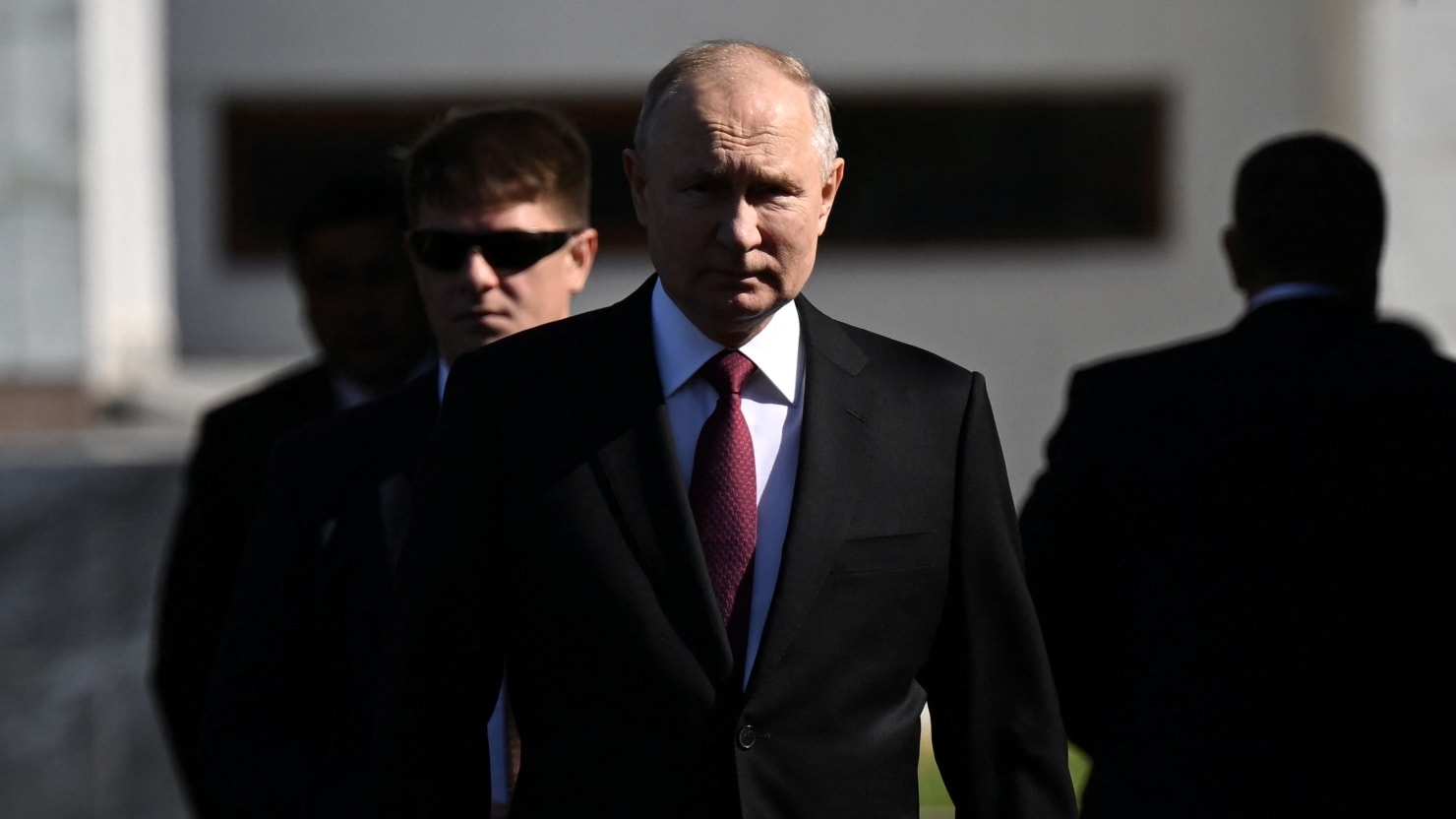
A “troubling” U.S. national security warning has stirred chaos on both ends of Pennsylvania Avenue this week, with the Biden administration confirming on Thursday that it believes Russia is developing weapons that threaten American infrastructure from space. Although the anti-satellite capability in question is not a weapon that can be used to attack humans on Earth—it could disrupt services on Earth, Kirby said.
The briefing comes a day after Rep. Mike Turner, the chair of the House Intelligence Committee, warned in an unusual statement of a “serious national security threat,” urging the Biden administration to declassify all information related to it. Reports emerged Wednesday suggesting the anti-satellite capability was either nuclear-powered or nuclear-capable.
Experts who spoke with The Daily Beast said the implication could be far-reaching either way.
Satellites are crucial components of the U.S. military’s ability to leverage power around the globe, collect intelligence, navigate, and communicate, in addition to being key linchpin of the world’s financial and communications systems.
They play a critical role in missile warning and missile tracking for the U.S. military in particular, Michael Duitsman, a research associate at the James Martin Center for Nonproliferation Studies, told The Daily Beast.
“From a military perspective, the ability to jam communications, especially strategic nuclear communications, would place additional stress on any system of nuclear command and control, which is already by its nature, due to the response times involved,” Duitsman said. “If you have to deal with jamming of your strategic communications, that puts a lot more stress on that process.”
Kirby declined to comment on whether the United States was capable of defending against the threat, adding that President Joe Biden has been informed of the threat and has been kept abreast of it in briefings. Senators Mark Warner (D-VA) and Marco Rubio (R-FL)—the chair and vice chair of the Senate Intelligence Committee, who were also alerted to the threat in recent weeks—said they are working with the Biden administration to develop options to respond.
Russia has long been working on weaponizing space.
In 2015, the Kremlin reorganized its military to create a space force, and has since been developing and testing counterspace systems—either as a way of deterring the United States from entering a regional conflict or to counter perceived U.S. military advantages, the Department of Defense assessed in a space policy review, which it provided to Congress last fall. In 2021, Russia tested a space missile against one of its own satellites, destroying it into over 1,500 pieces of debris.
The threat comes at a time when the U.S. military is actively working to boost its missile warning and defense capabilities. The same day Turner warned of the anti-satellite capability, the U.S. Space Force launched six satellites designed with missile tracking technology into low-Earth orbit.
“This launch represents a pivotal time for MDA as we enter a new phase of missile warning, tracking and defense,” Lt. Gen. Heath Collins, the director of the Missile Defense Agency (MDA), said in a statement. “These… satellites are an essential step forward in our efforts to stay ahead of our adversaries.”
Turner’s statement had sparked a frenzy in Washington over the public’s right to know about security threats, and the correlating risks of exposing sources and methods that could, for instance, go dark. “I am a bit surprised that Congressman Turner came out publicly today in advance of a meeting on the books for me to go sit with him alongside our intelligence and defense professionals tomorrow,” National Security Advisor Jake Sullivan said on Thursday.
Even with all of the concerns about Russian anti-satellite capabilities, Turner’s request was likely aimed at galvanizing lawmakers who have been doubting the importance of countering Russia in recent weeks, said Ronald Marks, a former CIA Congressional liaison. The Senate just approved a proposal that would fund Ukraine with more military aid, but it has faced opposition in the House of Representatives.
“I think he's concerned, as a lot of us are concerned at this point, that there is a softening in terms of the feeling in certain parts of this country toward Russia,” Marks said. “Russia is our enemy. Russia wishes us ill. Russia wishes us harm.”
Despite the serious concerns raised by the intelligence warning, some lawmakers sought to calm tensions in the hours after Turner issued his statement, noting that the threat is worth discussion but may not be cause for panic.
“As to whether more can be declassified about this issue, that is a worthwhile discussion but it is not a discussion to be had in public,” Rep. Jim Himes, the top Democrat on the Intelligence Committee, said.
"behind" - Google News
February 16, 2024 at 07:37AM
https://ift.tt/sb1t2Ke
The Real Dangers Behind the Russian 'Space Nuke' Frenzy - The Daily Beast
"behind" - Google News
https://ift.tt/KO0xwoT
https://ift.tt/QdsOF0P
Bagikan Berita Ini














0 Response to "The Real Dangers Behind the Russian 'Space Nuke' Frenzy - The Daily Beast"
Post a Comment